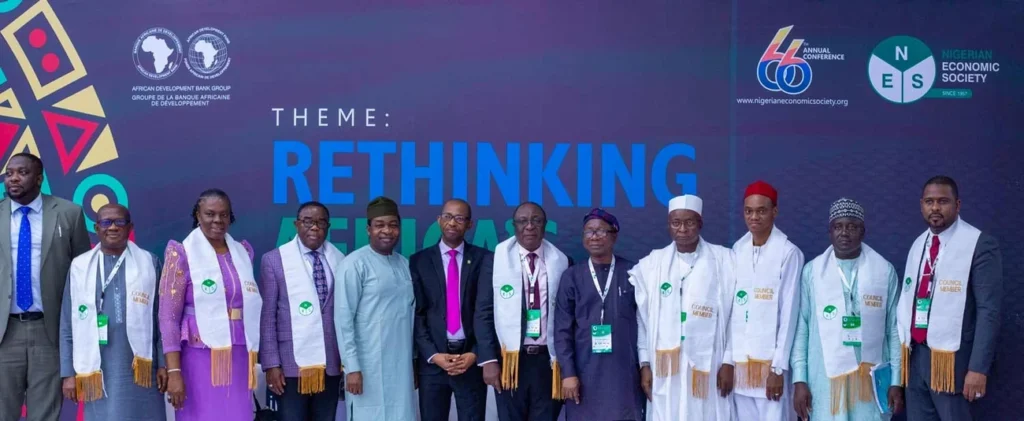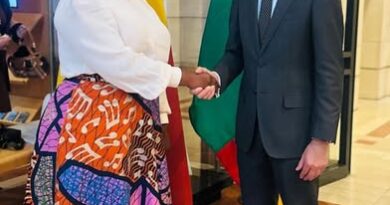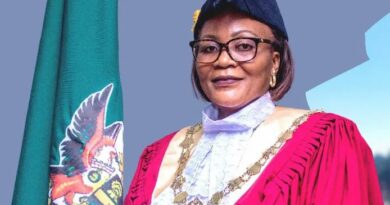AfDB, African Leaders Urge Governance Reforms, Deeper Integration
African leaders, experts, and development partners have called for urgent reforms to strengthen governance, deepen regional integration, and foster inclusive growth across the continent.
Speaking at the opening of the Nigerian Economic Society’s (NES) 66th Annual Conference in Abuja, Nigeria’s Vice President, Kashim Shettima, warned that Africa’s youthful population, with an average age of just 16.9 years, could become either a driver of prosperity or a source of entrenched poverty depending on policy choices.
The three-day conference, attended by more than 2,500 delegates from 22 African countries, is focusing on pathways to economic transformation in the face of structural vulnerabilities, climate change, geopolitical tensions, and debt pressures.
Comparing India’s $100 billion outsourcing industry with Nigeria’s peak oil revenues of $25 billion in 2011, Shettima urged Africa to diversify into knowledge-based sectors. “Africa’s 1.5 billion people should represent a formidable economic force, yet the continent accounts for just 16 percent of global trade,” he said. “We slept through the first three industrial revolutions. Now, in the fourth, Africa stands at a crossroads.”
He highlighted reforms by Nigeria’s government, including fuel subsidy removal, exchange rate unification, and tax reforms. While acknowledging rising living costs and inflation, he stressed that such measures were restoring investor confidence. “These are tough times, but the recovery will be permanent,” he said.
Nigeria’s Minister of Budget and Economic Planning, Abubakar Atiku Bagudu, also stressed the need for bold reforms and greater access to capital, noting that individual countries in Europe and Asia command larger debt markets than Africa as a whole. “To reach Nigeria’s goal of a $1 trillion economy by 2030, and to lift Africa as a whole, we must embrace paradigm-shifting policies at all levels,” he said.
Representing the African Development Bank (AfDB), Dr Eric Ogunleye, Director of the Bank’s African Development Institute, reaffirmed AfDB’s commitment to supporting the continent’s development agenda. He outlined initiatives including the Strategic Framework on Key Actions to Achieve Inclusive Growth and Sustainable Development, the Public Service Delivery Index, and specialised training platforms such as the Public Finance Management Academy for Africa.
“These tools are available at no cost to member countries and are designed to accelerate structural transformation and inclusive growth,” Ogunleye told delegates.
During a plenary session on governance, Ogunleye argued that leadership and governance models remain decisive in determining economic success. “Governance is not just an end in itself; it is an economic imperative,” he said. “Where governance is weak, whether overly centralised, fragmented, or reactive, countries fail to respond effectively to shocks.”
Experts also emphasised the need for deeper regional integration, with Professor Wale Ogunkola of the University of Ibadan urging African nations to leverage the African Continental Free Trade Area (AfCFTA) not only for tariff reduction but to build value chains, strengthen infrastructure, and link services to manufacturing. “If you don’t produce, what are you going to trade?” he asked.
The conference continues with sessions exploring innovative policy approaches to governance, trade, and inclusive economic transformation across the continent.



